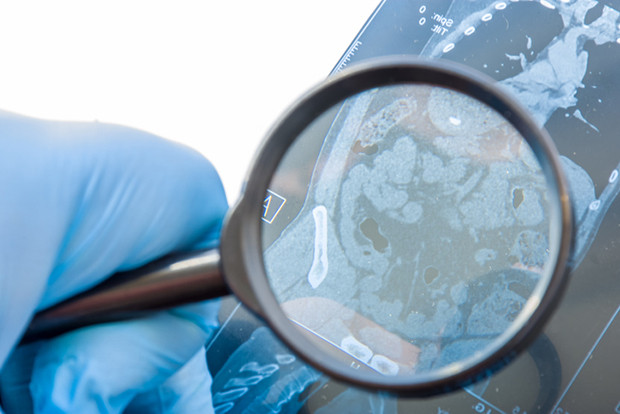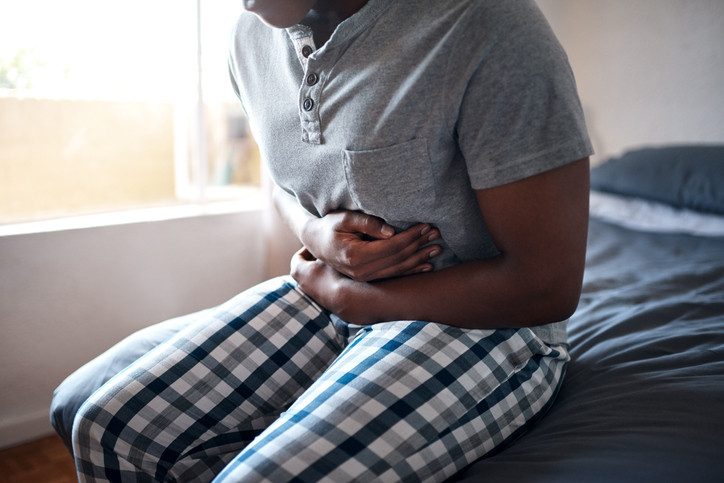
Trying to lose weight? Be careful not to lose muscle

Is your skin problem actually an autoimmune condition?

People with diabetes face higher risk of hearing loss

Antibiotic-free fixes for recurrent UTIs

Musculoskeletal syndrome of menopause: When menopause makes you ache all over

When can older women stop getting mammograms?

To lose weight, especially harmful belly fat, combine diet and exercise

Can men hold off on treating recurring prostate cancer?

The 7 types of rest and why we need them all

What are the early warning signs of cervical cancer?
Bladder & Bowel Archive
Articles
By the way, doctor: Is it okay to take a stool softener long-term?
I have been taking a stool softener daily for two months. It's helped with my constipation. Are there any risks to taking a stool softener on a long-term basis?
Defend yourself from diverticulitis
Adequate fiber can protect against this painful colon condition.
Image: Shidlovski/Getty Images
About half of Americans ages 60 to 80 have diverticulosis, a condition in which pea-sized pouches, called diverticula, bulge outward from the colon. After age 80, almost everyone has it.
Most of the time the pouches don't cause any problems, but if the diverticula become inflamed or infected, the result is diverticulitis, which produces symptoms like fever, nausea, vomiting, and pain or tenderness in the lower abdomen. It's unclear why this happens, but it's generally thought that the pouches become infected after stool or bacteria get caught in them.
Don’t delay cancer treatment during the pandemic
News briefs
The pandemic may have you feeling reluctant to seek medical treatment. But when it comes to cancer care, even a short delay in treatment may lead to deadly outcomes, according to a review of 34 studies published online Nov. 4, 2020, by BMJ. Researchers evaluated treatment delay and survival in more than a million people who had cancer of the bladder, breast, colon, rectum, lung, cervix, or head and neck. Each four-week delay in treatment — whether surgery, radiation therapy, or medication (such as chemotherapy or immunotherapy) — was associated with an increase of 6% to 8% in the likelihood of dying during the study period. Scientists say delays of up to eight weeks and 12 weeks further increased the risk of death. For example, in women who delayed breast cancer surgery by eight weeks, there was a 17% increased death risk; women who delayed surgery by 12 weeks had a 26% increase. Keep in mind, there are lots of unavoidable reasons why cancer treatment might be delayed, such as not being strong enough to undergo procedures or scheduling issues at a treatment center. But if there isn't a good reason to delay, it's best to get treatment as soon as possible.
Image: FG Trade/Getty Images
Coping With IBS
Pelvic physical therapy: Another potential treatment option
This treatment approach may help provide relief for many women with chronic pelvic pain and urinary symptoms.
The exact cause of pelvic pain for many women can be elusive, despite lots of tests and scans. In some cases, the symptoms are related to a problem that is often overlooked, says Dr. Eman Elkadry, an instructor in obstetrics, gynecology, and reproductive biology at Harvard Medical School. Pelvic pain may stem from a pelvic floor muscle problem that can be helped by a specialized form of physical therapy known as pelvic physical therapy.
"Although pelvic physical therapy may not work for everyone, it can be quite effective for certain individuals," says Dr. Hye-Chun Hur, director of the Division of Minimally Invasive Gynecologic Surgery at Harvard-affiliated Beth Israel Deaconess Medical Center and associate faculty editor of Harvard Women's Health Watch. She stresses that pelvic physical therapy is normally undertaken by a trained female practitioner.
Problems with your pelvic floor? Blame your firstborn
Research we're watching
While cesarean delivery may mean longer recovery time after your baby is born, it may make it less likely that someday you'll need to cross your legs when you cough or sneeze.
A study in the Dec. 18, 2018, issue of JAMA found that women who delivered their first baby by cesarean had half the risk of developing stress urinary incontinence (which causes urine to leak when you cough or sneeze) or overactive bladder, compared with first-time moms who had a spontaneous vaginal birth.
Do hemorrhoids increase my cancer risk?
Ask the doctors
Q. I have hemorrhoids. Could this increase my risk of colon cancer?
A. In short, no. Hemorrhoids don't cause or increase your risk for colon or rectal cancer. However, the two conditions may be mistaken for one another because they can produce similar symptoms, such as rectal bleeding, itching, and pain.
Diverticular disease of the colon
Diverticular disease develops due to a lack of dietary fiber, and is most common in the elderly, but many people never realize they have it because there are few symptoms.
When your bladder keeps you up at night
Having your sleep interrupted by the need to urinate (the medical term is nocturia) is a common cause of sleep loss, especially among older adults. Nearly two-thirds of adults ages 55 to 84 deal with this problem at least a few nights per week.
People with mild cases may wake two times a night; in severe cases, it may be as many as five or six times. The result can be significant sleep loss and daytime fatigue.

Trying to lose weight? Be careful not to lose muscle

Is your skin problem actually an autoimmune condition?

People with diabetes face higher risk of hearing loss

Antibiotic-free fixes for recurrent UTIs

Musculoskeletal syndrome of menopause: When menopause makes you ache all over

When can older women stop getting mammograms?

To lose weight, especially harmful belly fat, combine diet and exercise

Can men hold off on treating recurring prostate cancer?

The 7 types of rest and why we need them all

What are the early warning signs of cervical cancer?
Free Healthbeat Signup
Get the latest in health news delivered to your inbox!
Sign Up











